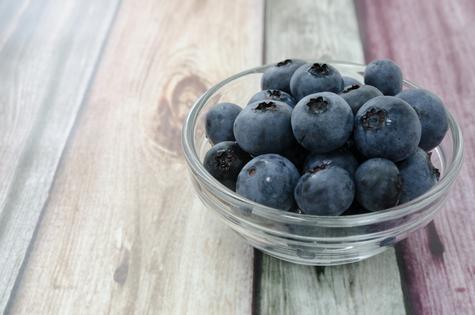The No. 1 fruit for diabetes, recommended by dietitians
Published in Health & Fitness
While all foods affect your blood sugar, those that contain carbohydrates are the ones that will impact it the most. The bloodstream carries usable energy (blood sugar) to all your body cells to be fueled. When you have diabetes, being strategic about what you eat, how much you eat and how often you eat can help your body to regulate blood sugar efficiently. And when choosing fruit with the least impact on your blood sugar levels, here’s what registered dietitians who are also certified diabetes educators recommend.
While all fruits can be enjoyed when living with diabetes, some have fewer carbs and less naturally occurring sugar than others. When selecting our No. 1 fruit for diabetes, we chose blueberries — and here’s why.
Low in sugar
Jocelyne Loran, RD, LDN, CDCES, a clinical dietitian specialist and diabetes educator at the University of Maryland Charles Regional Medical Center, always recommends blueberries to her patients with diabetes. She says, “When compared to some other fruits, you can get a larger serving of blueberries.”
Fresh and frozen blueberries are low in sugar, with 1 cup of blueberries providing 22 grams of carbohydrates, with 15 grams of naturally occurring sugars, per USDA data.
Packed with fiber
Blueberries are packed with fiber, meaning that the naturally occurring sugar in the berries is absorbed slowly into the bloodstream. One cup of blueberries contains almost 4 grams of fiber. Berries’ high fiber content not only helps prevent sugar spikes but also promotes fullness.
The 2020-2025 Dietary Guidelines for Americans recommend adults consume 22 to 34 grams of fiber per day. To put this recommendation into perspective, 1 cup of blueberries provides 12% to 18% of your daily needs.
Rich in antioxidants and anti-inflammatory nutrients
Aside from being high in fiber and low in natural sugar, blueberries are a great source of other health-supporting nutrients. Blueberries are rich in polyphenols, a group of nutrients with antioxidant and anti-inflammatory properties that may offer health benefits. Research shows that blueberries’ polyphenols may help protect against cardiovascular diseases and improve blood pressure, per a 2023 review in Food Production, Processing and Nutrition.
Blueberries are also good sources of other essential nutrients like vitamin C, which supports healthy skin and wound healing; vitamin K, which plays a role in blood clotting; and manganese, which helps metabolism and maintains strong bones and the immune system.
How to enjoy blueberries
You can enjoy blueberries in various ways — fresh, frozen and canned. When fruits are in season, they are more available and probably at a lesser cost than when they aren’t. The great thing about buying fresh blueberries is that you can freeze them to use later.
Canned blueberries are another option for enjoying this delicious fruit. However, they most likely are canned in syrup, which can add to the amount of sugar. "Look for those canned in light syrup and rinse the berries in a colander under water before consuming … to decrease the added sugar content," Loran recommends.
In addition to eating blueberries alone, pair them with some lean protein, such as low-fat cheese, Greek yogurt or healthy fats, like nuts, seeds and avocados, to help slow down the release of their natural sugars into the bloodstream.
(EatingWell is a magazine and website devoted to healthy eating as a way of life. Online at www.eatingwell.com.)
©2024 Dotdash Meredith. All rights reserved. Used with permission. Distributed by Tribune Content Agency, LLC.







Comments